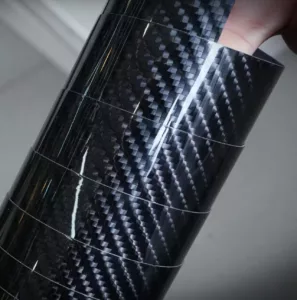Can You Tint a Leased Car? Rules, Risks, and Expert Tips
Can You Tint a Leased Car? What You Need to Know Before Making a Change
Window tinting is one of the most popular upgrades for vehicles today. It provides privacy, reduces interior heat, protects against UV damage, and enhances your car’s appearance. But what if your car is leased? Can you tint a leased car, or are you risking penalties when you return it?
This is a common question for drivers who lease vehicles. While tinting might seem harmless or even beneficial, making any changes to a leased vehicle can have consequences if not done properly. In this guide, we’ll walk through the rules around tinting leased vehicles, what to consider before installing tint, and how to avoid trouble when your lease ends.
As always, we’ll share tips from TERMINAX, a trusted brand in premium automotive window films, so you can make an informed decision.

The Short Answer: Yes, But With Conditions
In most cases, you can tint a leased car. However, it depends on the terms of your lease agreement and whether the modifications are reversible and compliant with local laws. Lease agreements generally require that the car be returned in original condition or that any changes made must be removed without damage.
That means if you plan to tint the windows of your leased vehicle, you must ensure:
- The tint complies with state or local laws
- The tint can be professionally removed before lease return
- The tint does not damage the glass or defroster lines
Failing to meet these conditions can result in additional fees or even voiding of your warranty.
Understanding Lease Agreements
Before making any modifications to a leased vehicle, the first step is to review your lease agreement. Most leasing companies include a clause related to vehicle modifications.
Typically, this clause states:
- The lessee must return the vehicle in good condition
- Any alterations or customizations must be removed
- The vehicle must be returned to factory or original specifications
Window tint is often considered a reversible modification, which makes it more acceptable than changes like engine tuning or body alterations. However, it is always best to confirm with your leasing company or dealership to avoid future disputes.
Legal Considerations: Window Tint Laws
One of the biggest risks when tinting a leased car is violating local window tint laws. Tint regulations vary by state and country. They govern how dark your tint can be (measured by Visible Light Transmission or VLT), and which windows can be tinted.
Common restrictions include:
- Front-side windows must allow a certain percentage of light through
- Windshield tinting is limited to the top few inches (visor strip)
- Rear window tint may have fewer restrictions, but it still requires compliance
If your window tint does not comply with local laws, you could face fines or be required to remove the tint at your own expense, even before returning the leased vehicle.
TERMINAX offers a range of window film that meet legal requirements across various regions, so you can upgrade your windows without violating the law.
Benefits of Tinting a Leased Car
When done correctly, tinting a leased car can be a worthwhile investment during the term of your lease. Here are a few benefits you can enjoy:
Heat Reduction
Window tint can significantly reduce interior heat, especially during summer months. This improves driving comfort and reduces your reliance on air conditioning.
UV Protection
High-quality tints like those from TERMINAX block up to 99 percent of harmful UV rays. This protects your skin and prevents sun damage to the interior surfaces of the vehicle, helping maintain resale or return value.
Privacy and Security
Tinted windows make it more difficult for outsiders to see inside your car. This can deter break-ins and enhance your sense of privacy while driving or parking in public.
Aesthetic Enhancement
Window tint can give your car a sleek, modern appearance that’s hard to match with factory glass.
Risks of Tinting a Leased Car
While the benefits are clear, it’s also important to weigh the risks before deciding to tint your leased vehicle.
Potential Lease-End Charges
If the tint is not removed properly or damages the window, you may be charged for restoration costs. Poor-quality tints can peel or bubble, leaving adhesive residue that is difficult to clean.
Warranty Issues
Some manufacturers or leasing companies may void glass-related warranties if after-market tint is installed, especially if the film interferes with embedded defroster or antenna systems.
Legal Trouble
As mentioned earlier, illegal tint can lead to tickets, fines, or being required to remove the film.
How to Tint a Leased Car the Right Way
If you choose to tint your leased vehicle, follow these guidelines to stay compliant and protect your investment.
1. Get Approval First
Check your lease agreement and speak to your dealer or leasing agent. In some cases, getting written approval is the best way to avoid future conflicts.
2. Choose Legal Tint
Research the window tint laws in your state or city. Work with a reputable tint installer who is familiar with local regulations and can recommend appropriate VLT levels.
3. Use High-Quality, Removable Film
Invest in a premium window tint from a trusted brand like TERMINAX. High-quality films not only look better but also last longer and are easier to remove without damaging the glass.
TERMINAX ceramic and carbon window films offer outstanding heat and UV protection while maintaining optical clarity. They are also designed for easy removal at the end of your lease.
4. Work With Certified Installers
Make sure the tint is applied by a certified professional. Poor installation can result in air bubbles, uneven coverage, or damage to window components. Professional installers often provide warranties on both the film and the labor.
5. Plan for Tint Removal
As your lease nears its end, schedule an appointment to have the tint professionally removed. Avoid peeling the film yourself, as this can leave adhesive residue or scratch the glass.
Alternatives to Permanent Tint
If you are hesitant about installing a traditional window tint on a leased vehicle, there are temporary options available.
Removable static cling films or shade screens can provide temporary UV protection and privacy without permanent alteration. While not as effective as ceramic tint, these solutions offer a compromise for short-term needs.
Final Thoughts
So, can you tint a leased car? The answer is yes, with caution. Tinting can enhance your leased vehicle’s comfort, privacy, and appearance—but only if done properly and within the boundaries of your lease agreement and local laws.
By choosing high-quality tint products from TERMINAX and working with professional installers, you can enjoy the benefits of tinted windows during your lease without worrying about penalties later.
Always remember to:
- Check your lease contract
- Use a legally compliant, removable tint
- Keep all receipts and documentation
- Plan for tint removal before returning the vehicle
When done right, tinting a leased car can be a smart, stylish upgrade that keeps you protected and comfortable on the road.
For long-lasting performance, heat reduction, and superior UV protection, consider TERMINAX ceramic or carbon films as your go-to solution for leased and owned vehicles alike.


